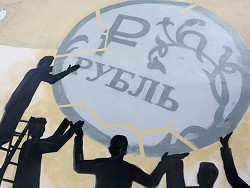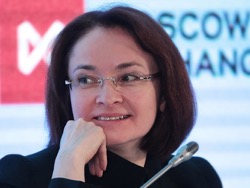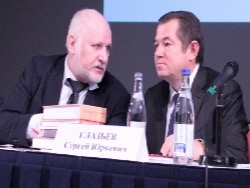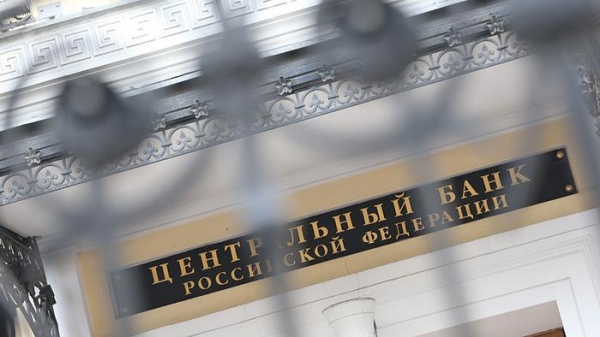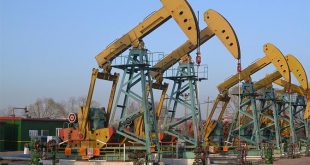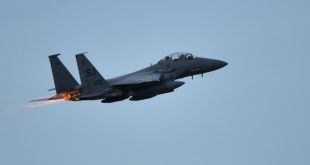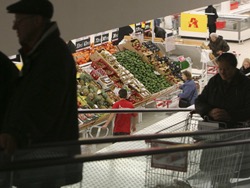
In the opinion of the Central Bank, low oil prices have less impact on the economy as before
The situation in the economy is growing better than could be expected given that the second wave of the decline in oil prices. As follows from analytical materials of the Central Bank, published on Tuesday, development of import substitution and non-oil exports, as well as some other factors point to a gradual adaptation of Russian economy to changing external conditions. Exports of goods and services continue to support economic activity. However, the population, although gradually changing its attitude toward the assessment of the economic situation, notes the deterioration of their financial situation, so money prefer not to spend but to save, not supporting economic growth.
On Tuesday, the Central Bank has published two research reviews that relate to the state of the economy in February, as well as inflationary expectations and consumer activity in March. The regulator notes that based on macroeconomic data, we can say that the factor of low oil prices is not so strongly affect the state of the economy as before.
To the question of “Izvestia”, does this mean that the crisis, about which so much is said, was not so deep, first Deputy Chairman of the Central Bank Ksenia Yudaeva said that the situation in the economy develops better than one would expect.
— Oil prices are now relatively low — about $40 per barrel, and they declined in two stages. Last year was the fall, and then in the beginning of this year. Now there is some recovery. But, despite the decline in oil prices, we see that the situation in the economy continues to stabilize. So I didn’t focus on the word crisis. Our situation best describes the term “new reality”, i.e. it does not temporary difficulties, and new coordinates in which our economy will develop, — told in interview “news” the first Deputy Chairman of the Central Bank (the interview read in the nearest numbers).
According to Ksenia yudayeva, in this new reality there are various new opportunities. In some sectors showing signs of recovery.
— This is not happening in all industries, of course, but there’s really winning from this situation, for them new opportunities and they start to use them. Moreover, last year the industrial enterprises have shown a sufficient profit. Today, our economy finds new points of competitiveness and new opportunities for growth, she said.
Analytical materials, published on Tuesday, illustrates the words of the first Deputy Chairman of the Central Bank:
“Dynamics of indicators so far points to continued economic downturn. Nevertheless, the response of the Russian economy on another round of reduction in oil prices in early 2016, estimated to have been significantly weaker than last year. The annual rate of decline of GDP in the first quarter of the current year is estimated at 1.7–2.0%, which is closer to the upper boundary of the interval forecast, published in the March issue of the Report on monetary policy. The rate of decline of the GDP, cleared of seasonality, the first quarter of the current year will amount to about 0.3 percent.”
Also, the regulator noted that the annual growth rate of industrial production in February 2016 for the first time in the last 12 months was positive (1%). The support industry continues to provide the extractive industry, the growth of which reached to 0.6% the previous month taking into account the correction for seasonal effects, the Central Bank notes. And concludes that exports of goods and services continue to support economic activity.
However, domestic consumption is still slow. Thus, according to the Central Bank, retail sales in annual terms continued to decline, albeit at a slower pace than in January. According to the regulator, reduced the demand for consumer durables (except mobile phones). “This suggests that households continue to save money amid the continuing economic uncertainty and low income,” emphasizes the Central Bank.
The reasons for the unwillingness of the population to support the economy by investing their money in active use, are disclosed in another research report based on a survey of Fund “Public opinion” (FOM). And although in March 2016 inflation expectations of citizens for the year ahead fell for the fourth month in a row and also has decreased and the number of those who expect rising prices in the next month, the level of inflation expectations still remain elevated, it is noted in the comments of the Bank of Russia.
The Russians still took a wait. Despite the reduction of inflation expectations, they are not willing to spend money, especially on major purchases, the survey showed Thomas. With January 2015 remains the negative attitude of the population to purchases on credit. “In March 2016 67% of respondents believe the current time is appropriate for purchases on credit (in 2014 — on average 40%, in 2015 — 64%),” says the Central Bank.
However, according to the survey, increased the optimism in the responses to the questions about the assessment of prospects of Russian economy development for the coming year and about the change in personal welfare. As a result, the consumer sentiment index in March rose for the second month in a row, but its value remains among the lowest since the beginning of observations.
Chief economist at Alfa Bank Natalia Orlova notes that the population just prefers not to save, but to spend it on current consumption, so, she said, the retail sales in nominal terms is increasing, although real and falls. She cites the analogy of wages.
— Now it is accepted to speak about significant reduction of salaries, but this is in real terms and in nominal they grow about 5% per year. All this shows the high level of inflation, — says chief economist at Alfa Bank.
And the rapid increase of deposits it explains the high interest rates that banks established after raising the key rate of the Central Bank.
— This growth — more interest capitalization — emphasizes Natalia Orlova.
Director of research and Analytics PSB Nikolay kascheyev considers that some effect for parts of the economy has given the devaluation, and the maintenance of liquidity of banks did not allow her to collapse.
— But that is the crisis, when the saying “Chicks before they are hatched” is truer than ever. In 2008 there was a sharp transition from good growth to a short deep recession. Now the real economy recession in the coming few years, it was time to adapt. But will “fall” to count chickens — 2017 — there and see what and how we adapted. In my humble opinion, one should not make optimistic statements ahead of time. It is better to remain vigilant, says Nicholas Kashcheev.

